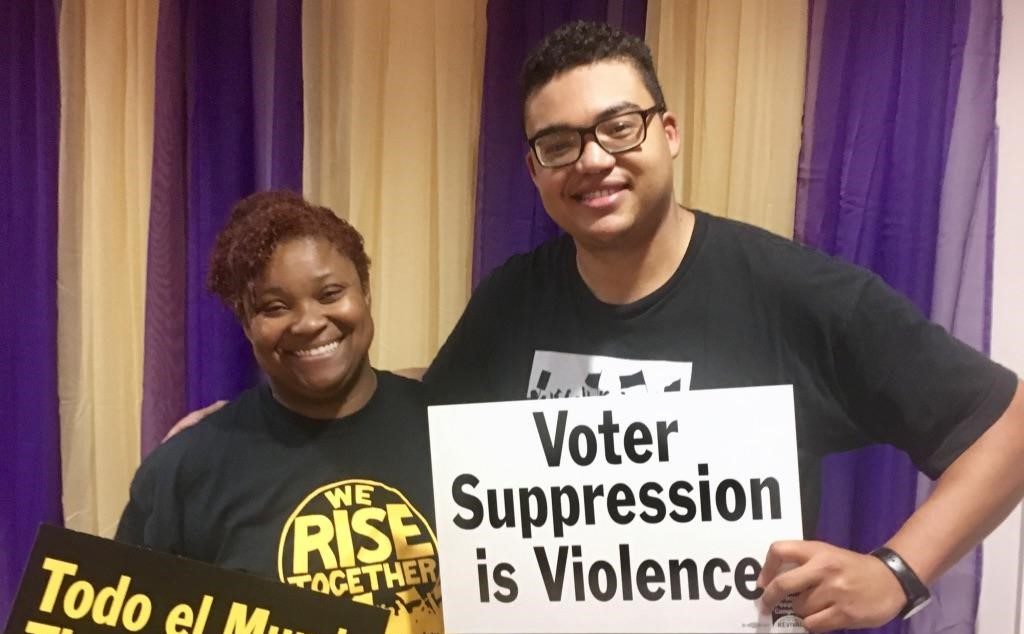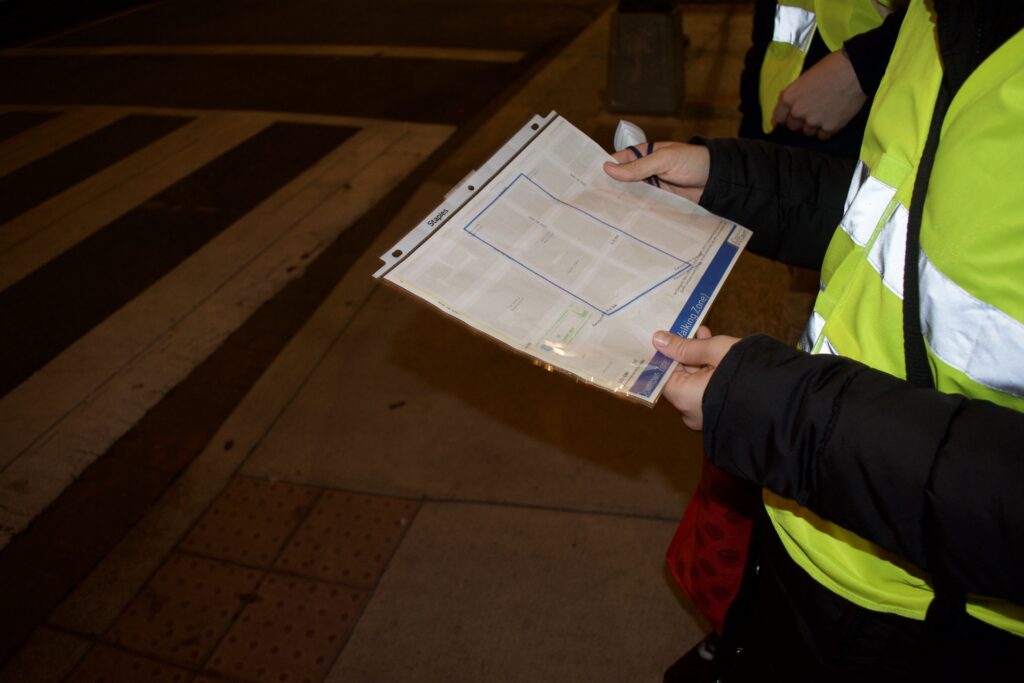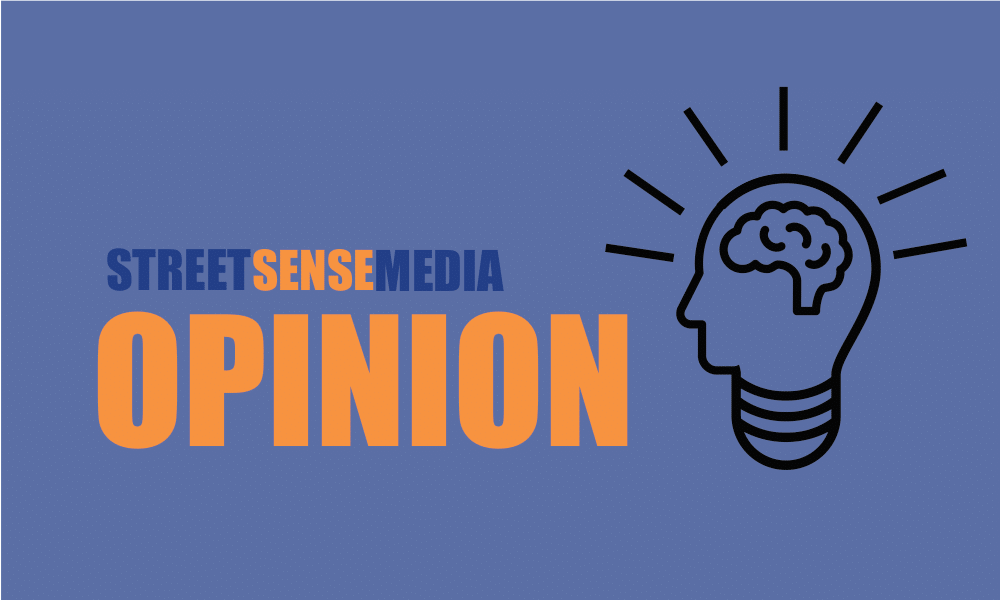On Feb. 22, organizers with the Poor People’s Campaign made their case for local mobilization to an overflowing room of activists in John Wesley AME Zion Church on 14th Street. Expressing concern about what they said was a tendency for DMV residents to disproportionately stay home during national marches in the District, multiple speakers called on locals to sign up and turn out for the Campaign’s Moral March on Washington on June 20, and to persuade friends, family members, and coworkers to do the same. The organizers hope to draw thousands from around the country to the streets of D.C. to demonstrate against poverty and intersecting social issues.
Seeking to revive the spirit of the 1968 movement conceived by Rev. Dr. Martin Luther King, Jr., shortly before his assassination, the relaunched Poor People’s Campaign officially took flight in 2018 after months of organizing meetings. The campaign seeks to build a broad coalition to address poverty and the numerous social and political issues with which it intersects.
[Read More: After 50 years, organizers reignite MLK’s Poor People’s Campaign]
“We’re always thinking about who’s not in—who can we bring in,” explained Rob Stephhens, the campaign’s Deputy Director, stressing the campaign’s commitment to building an intersectional alliance against poverty. “If your coalition is comfortable, then it’s too small.”

Indeed, the intergenerational crowd at the Saturday morning meeting drew from an eclectic mix of communities in and around the DMV, including attendees from as far away as Baltimore and even Florida. A strong religious contingent featured members of Our Lady Queen of Peace Catholic Church in Arlington, Temple Sinai in D.C., the Religious Action Center of Reform Judaism, Luther Place Memorial Church, Western Presbyterian Church — which sent a notably large group—and more. Howard University and the University of the District of Columbia were also represented, along with Code Pink, the People for Fairness Coalition, and Physicians for Social Responsibility.
Much like its predecessor in 1968, the relaunched Poor People’s Campaign draws largely, but not exclusively, from communities of faith. MLK, a Baptist minister and the planner and intended leader of the original campaign, has been succeeded in the leadership role by co-chairs Rev. Dr. William J. Barber II and Rev. Dr. Liz Theoharis, Protestant and Presbyterian ministers, respectively. Nevertheless, Zillah Wesley, chair of the D.C. Poor People’s Campaign and DMV Coordinator for the Moral March on Washington, pushed back on the idea that one must or should be faithful to join the movement. “I know for me, this is my church,” she explained. “For other people, it’s as simple as the golden rule — do unto others as you would have them do unto you.”
Video feature by Time magazine
Calling on both the faithful and those motivated by secular ethics, the Poor People’s Campaign has issued what it calls “a national call for moral revival.” Its wide-ranging agenda demands substantial action to address systemic racism, poverty and inequality, environmental degradation, militarism and the military-industrial complex, and national morality.
Rev. Alvin O’Neal Jackson, National Executive Director of the Poor People’s Campaign and a retired pastor formerly of National City Christian Church, argued passionately at the meeting that these social and political issues are “not a problem of scarcity. We’ve been blessed with abundance. Ours is a problem of will, and priorities, and courage.” The persistence of militarism, wealth inequality, homelessness, and poverty, he said, “is constitutionally inconsistent, is morally indefensible, and is economically insane.” Jackson called upon activists in attendance to mobilize and organize 100,000 DMV residents to join the thousands from around the country that he expects will attend the Moral March on Washington in June.
To achieve this goal, the campaign has rolled out a list of major partner organizations, created an “organizer’s toolkit” (available in both English and Spanish) to assist volunteer supporters, and hosted mobilizing meetings in numerous cities within an eight-hour drive of D.C. National co-chairs Theoharis and Barber also rallied support by speaking at a mass meeting at the Church of the Epiphany in downtown D.C. on Jan. 29.
[Disclosure: Street Sense Media rents office space from the Church of the Epiphany]
One of the campaign’s key mobilizing challenges, Wesley explained, is turning interested individuals and partner organizations into concrete commitments for June 20. Despite a lengthy list of partners and intentions to invite every religious group in the DMV, “it doesn’t always trickle down to the main people,” she said. Matching pronouncements made at the top with popular organizing from the bottom up was a major goal of the mobilizing meeting, where attendees were encouraged to write down and submit at least one specific action they would take to bring in additional supporters—with the goal of collectively mobilizing 600 people in the DMV by March 21, the date of the next D.C. meeting.
[Read More: Poor people stand up: National campaign to build community and spark change stops in DC]
In addition to mobilizing people, the meeting organizers sought to secure commitments from local businesses and nonprofits to serve as hospitality or transportation hubs on the day of the march. As the expected thousands arrive and fill downtown D.C., drop-off points, bathrooms, and food distributors will serve critical roles in making the march a success.
 Elliott Smith, co-DMV coordinator for the Moral March on Washington, outlines the stakes of the movement at the campaign’s mobilization meeting on February 22. Photo by Nick Shedd
Elliott Smith, co-DMV coordinator for the Moral March on Washington, outlines the stakes of the movement at the campaign’s mobilization meeting on February 22. Photo by Nick Shedd
Wesley suggested that the key to building these bridges and securing commitments is simply to talk to people, visit their church, and take the time to get to know them over coffee. “Show you’re in here for the long run, and this is not transactional,” she advised. “I don’t just want you for June 2020; I want us to all build and learn and love together.”
Whether or not maximizing attendance at the Moral March on Washington is Wesley’s sole goal, however, the organizers made clear that mobilization for that march is a top priority. Multiple speakers, including Elliot Smith, Wesley’s co-DMV coordinator for the march; Karen Brau, pastor at Luther Place Memorial Church; and both Wesley and Stephhens stressed repeatedly the immensity of the social problems at stake. Jackson called the march an opportunity “to build power and change the narrative.” And Wesley herself explained that her vision is for this march — and the wider movement — to be an opportunity for D.C.’s voice to be heard.
The mobilization meeting on Feb. 22 was but the first of many, which will continue to occur in Virginia, Maryland, and D.C. The campaign seeks to kick off a larger movement with its June 20 Moral March on Washington, which will take place on the National Mall.
“It’s not enough just to be woke,” Jackson said at the meeting. “You can be woke and in bed. […] It doesn’t take a whole lot of us, but if just a remnant, just a few of us really join together, we can change this.”








